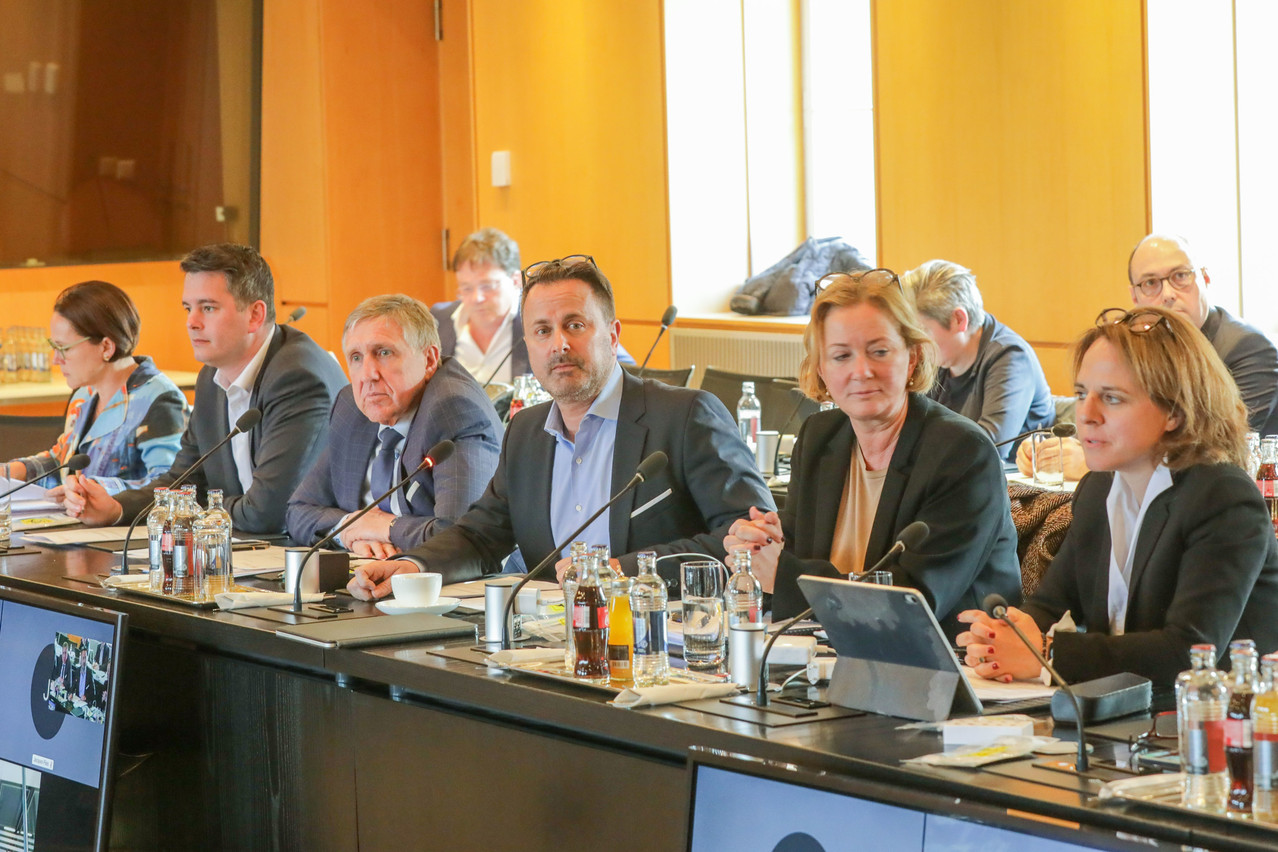A so-called tripartite began meetings last week to seek a compromise on how best to support Luxembourg's population through the energy crisis that is seeing prices increase while also triggering ripple effects across the economy.
“We didn’t choose for a historic crisis to be followed by another crisis,” said prime minister Xavier Bettel (DP) in parliament on Thursday as the economy is still reeling from the impact of the pandemic.
An €830m package agreed between the government, employers and employee representatives includes a tax credit for households to compensate the loss in purchasing power.
Individuals receiving the REVIS minimum guaranteed income or Cedies student financial aid will receive €14.5m in financial support as they cannot benefit from the tax credit. Another €5m are earmarked to increase rent subsidies.
Prices for petrol, diesel and heating oil will drop 7.5 cents per litre until July, a measure that will cost €75m, Bettel said. In total, €600m in aid are being paid to private households. “It’s extraordinary,” the prime minister said.
Another €225m are planned for businesses to pay for rising prices now but also to help them become more energy resilient in future. In addition, the state will cover loan guarantees worth €500m for companies who face cash flow issues and must borrow money.
Further details of the package will be presented over the coming days.
“The measures from the government ensure that there is no household that has less purchasing power than before the crisis. Not a single one,” Bettel said, citing Statec data.
One labour union--the OGBL--late on Wednesday walked out of the tripartite talks. “The tripartite did not fail,” Bettel said, adding that four out of five partners were in agreement. “I regret this deeply,” he said about not being able to get the OGLB on board.
The premier claimed that measures proposed by the OGBL would have cost more than €1.5bn and would have supported households already earning more than €10,000 a month, rejecting that money should be paid to those who don’t need it. “Our aid reaches far into the middle class.”
A crucial point of discussions was the indexation of wages, which sees salaries adjusted for inflation. Because of rising prices, employees will see a 2.5% wage increase in April. The last payment was triggered in October but Statec predicted that another index payment could be due as soon as August this year.
Under the agreement signed between social partners, the second index payment will be delayed until 2023. Should a second index payment be due next year, this would again be pushed back.
“I want to assure you that it was, is and remains our utmost goal to maintain the index,” Bettel said.
In 2012, in the aftermath of the financial crisis, the government under prime minister Jean-Claude Juncker (CSV) had demanded that there would be only one index payment, a measure supported by 53 out of 60 MPs, including members of the opposition.
“I ask you for broad political consensus on this agreement,” Bettel said.
Parties react to the package
And parties in parliament largely supported the agreement. There was little doubt that the majority parties in government--the DP, LSAP and déi Gréng--would give the deal a thumbs up. But support also came from the CSV, the biggest opposition group.
“We will cooperate constructively,” said Gilles Roth (CSV) as numerous measures will need to make their way through parliament and be voted into law at speed for households and companies to benefit from them as quickly as possible.
For the LSAP, which is historically close to the OGBL union, the deal was nonetheless difficult to swallow. “We regret that we couldn’t agree with the OGBL, a union that we are close to,” said Yves Cruchten, speaking for the LSAP.
Cruchten said the measures are reasonable. “It’s the right path and it’s socially just,” he said of the package.
The fiercest criticism came from the smaller opposition groups. The ADR insisted that alternatives to limiting the index to one payment a year would have been possible. Fernand Kartheiser, speaking for the party, said the government should abolish its CO2 tax on petrol and diesel, calling the price drop of 7.5 cents per litre, “a drop in the ocean”.
Déi Lénk on the other hand, wanted greener measures, with Myriam Cechetti stating that the price drop on fossil fuels but not on basic products like food or sanitary products was inviting more fuel export, and contradicted the government’s general goals on climate. Low and middle-income households would have to bear the brunt of the energy crisis instead of the high income households too, should the indexation mechanism be pushed to April 2023.
Sven Clement of the Pirate Party also pointed at the fossil fuel aids and plans to halt indexation temporarily. For his party, the socially selective measures proposed by the state would give more to high income households and heavy polluters--whose cars for instance consume more CO2--than early adopters of green energy mobility or public transports. Allowing the indexation mechanism to be pushed to next year would open the door to further indexation delays, which would then have to be compensated by a new government in place in 2023. For the Pirate Party, as for the déi Lénk, the package proposed by Bettel is a step back not only in the fight against social inequality but also climate change.
This article was edited to include the positions of the political parties.
